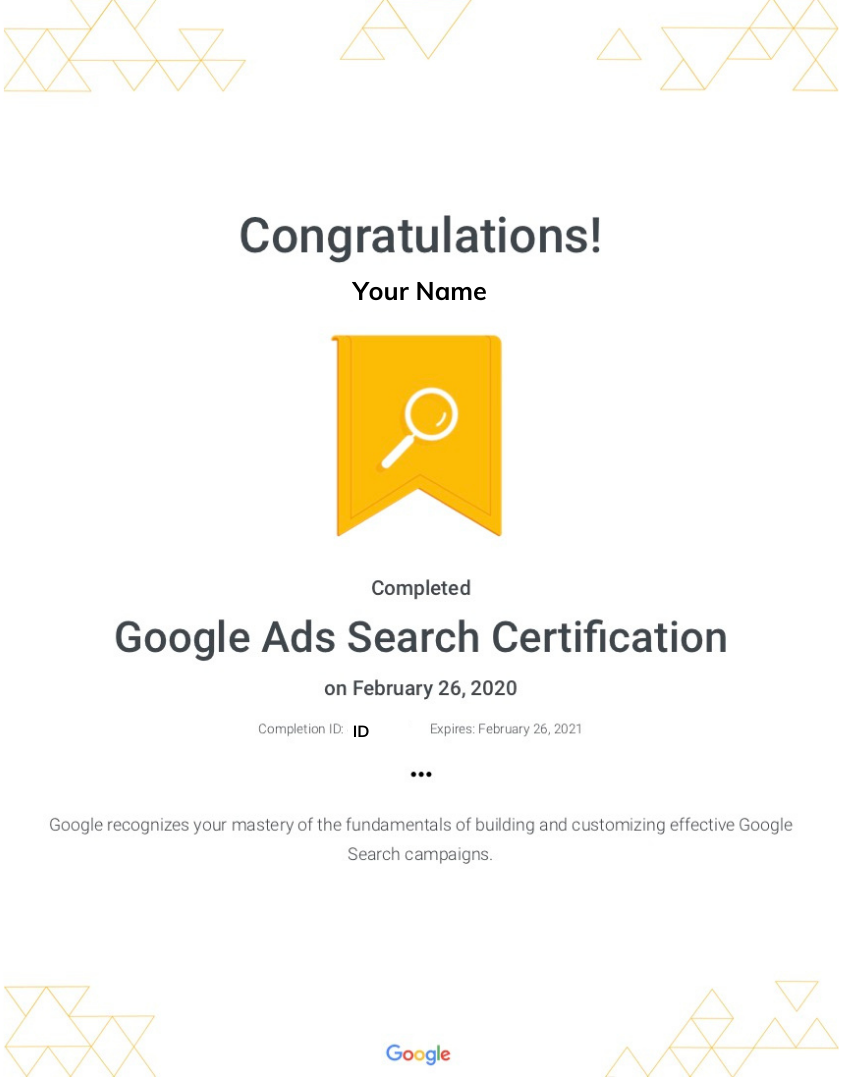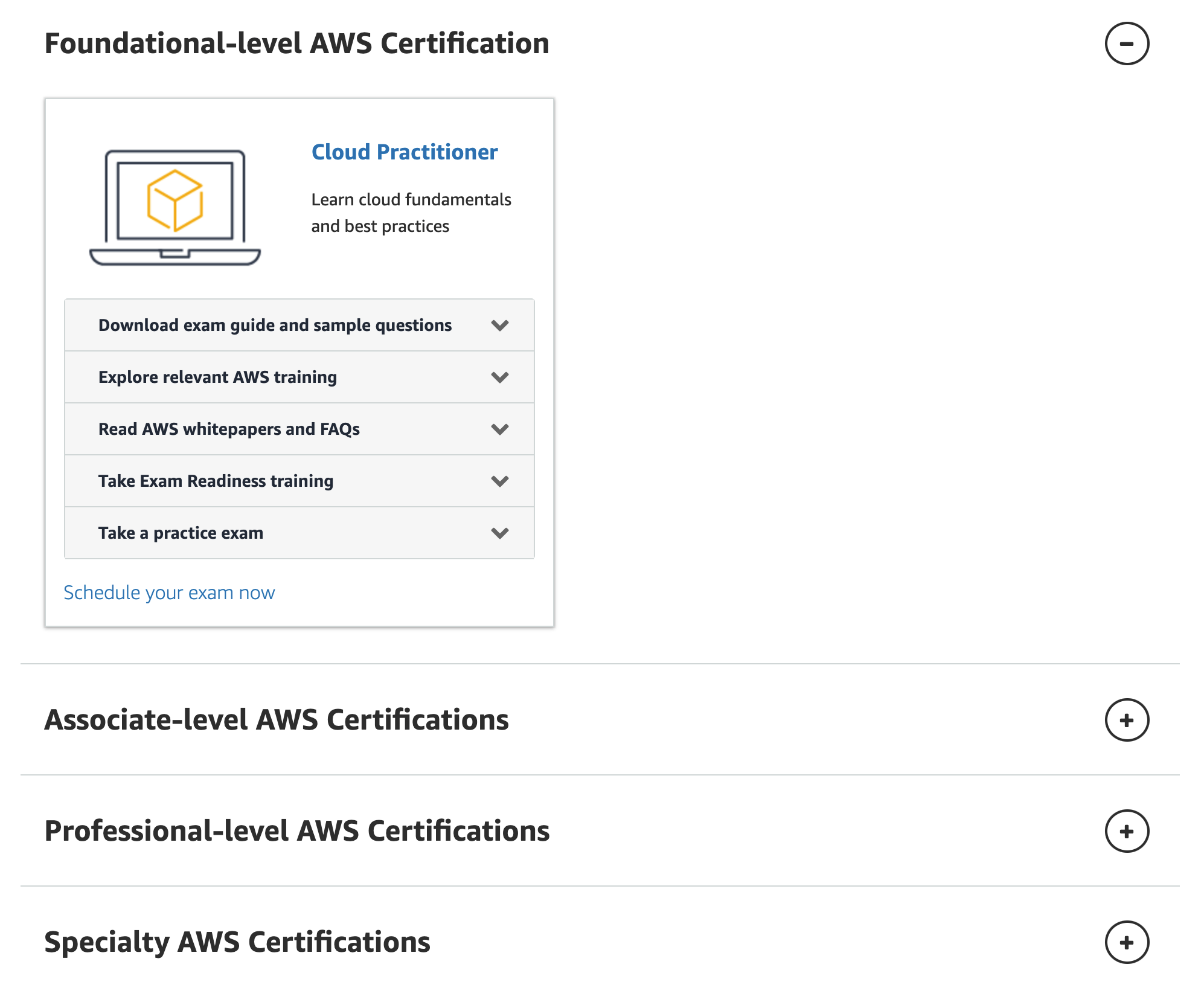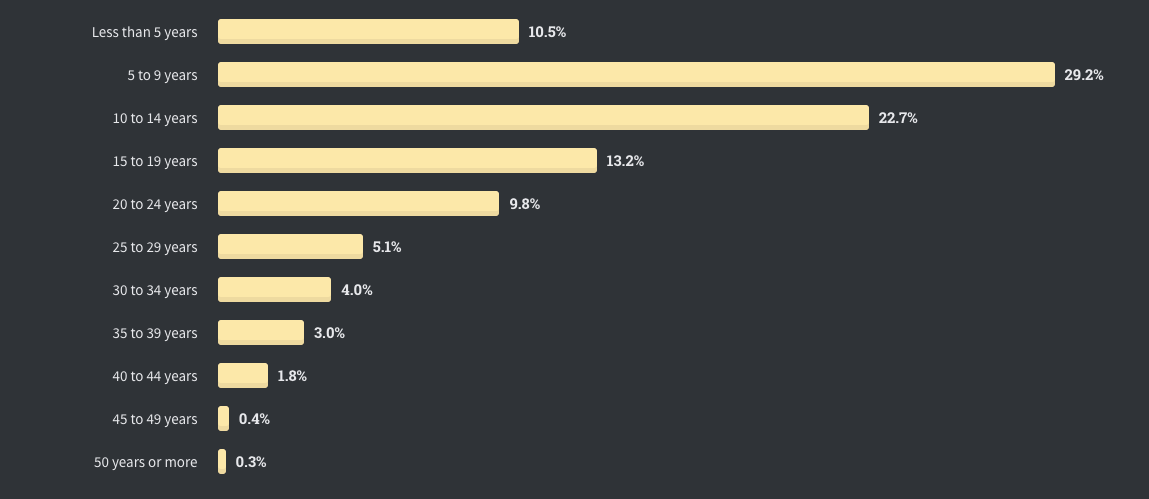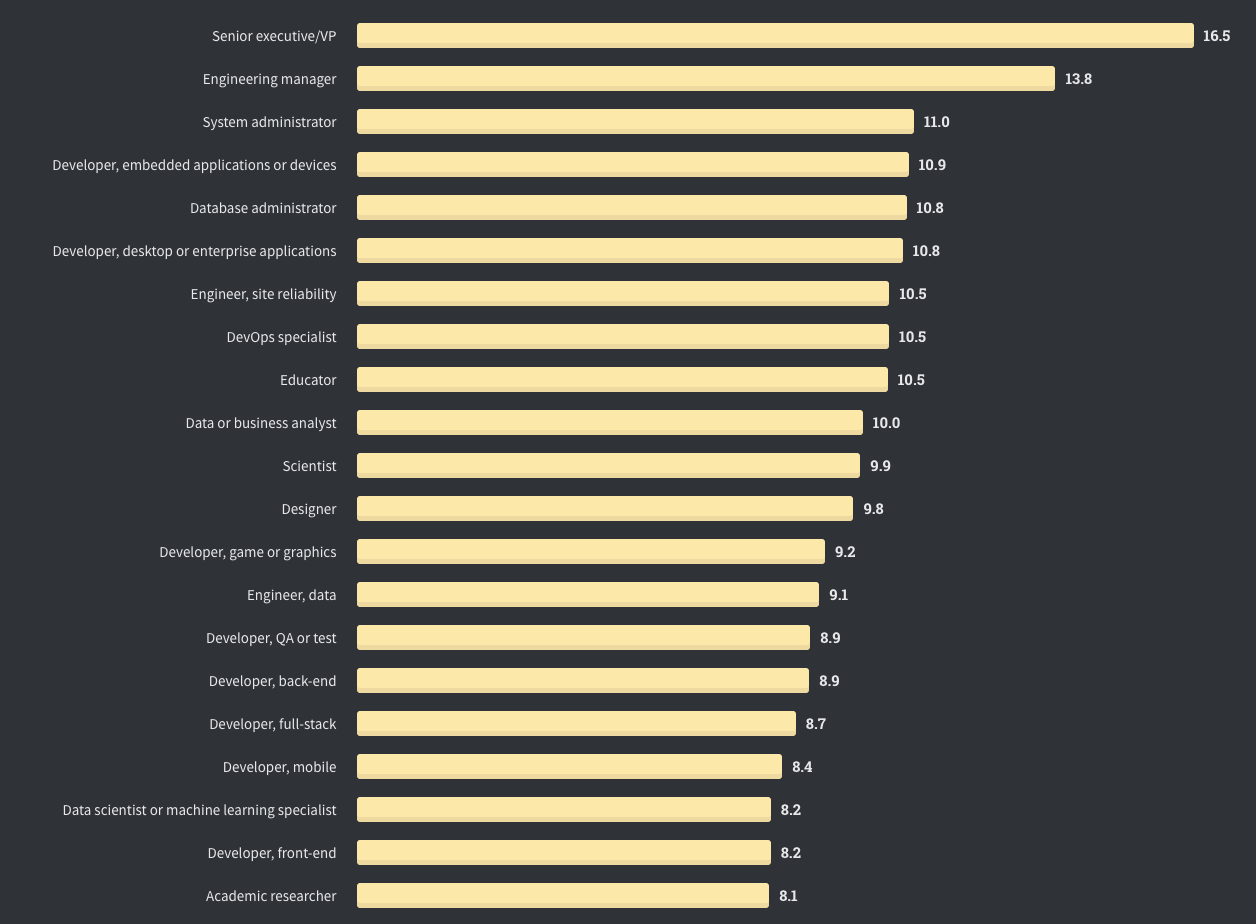
In today’s world, digital transformation is everywhere, and we can see evidence of it in our daily lives. In order to be able to provide these different strategies for successful business growth, marketing standards are necessary. Google provides a certification for those seeking a career that will be benefitted by this type of knowledge and skill.
Google Ads Certification is a certificate that Google offers to those who want to be recognised for their expertise in the Google Ads platform.
Skillshop, an online training and certification program offered by Google, is the best place to find a course on Google Ads. There are courses and study materials available, depending on the type of certification you need or prefer to take. A certification from Google is worth it, because they offer updated information on what types of ads work best, and Google offers six different options for certification as below:
Demonstrate the ability to successfully optimise Search campaigns. Candidates who complete the certification process will be able to leverage a variety of automated tools, like Smart Bidding and Audience Solutions, to boost campaign performance.
Validate your expertise in protecting and growing advertising investments using Google Display. Tailor strategies to focus on specific marketing goals that make the most of your display ads investments.
Demonstrate your understanding of how to tell effective stories on YouTube to reach potential customers and drive more demand at scale.
Enhance your knowledge of integrating, optimising, and configuring Shopping ads to improve performance. This certification will also verify you know how to create and optimise Shopping campaigns that maximise reach and conversions.
This Certification demonstrates your mastery of Google Ads planning and advanced optimisation. Certified users will show they understand the fundamentals of campaign creation and more complex strategies for delivering business impact.
This Certification is a certification that can be earned by demonstrating your understanding of using Google’s measurement solutions to measure and track the performance of digital ads.
(*does not count toward the Google Partner badge)
Google Ads certification is suitable for those who want to work in a business that sells products or services online. These are the people responsible for managing advertising campaigns on platforms like Facebook, Twitter and Instagram as well as Google Adwords. This includes everything from writing ads with compelling messages, making adjustments when needed according to specific data (such as how many people clicked on the ad), and following up with customers after they have made a purchase.

By getting certified, you can demonstrate your expertise to current and prospective employers with a personalised certificate. You can also use Google AdWords certification to help your company become a Google Partner or Premier Partner in the Google Partners program. Jobs that can utilise Google Ads are:

Here are some of the criteria for agencies to be a Google Partner.
All of the exams are free to take and you’re given 75 minutes to answer all the questions. In order to be certified, you’ll need to get at least 80% of the questions correct. Each certification is valid for 12 months once you’ve passed. Each exams are of different length, ranking from 46 questions to 50 questions:
Learning resources for the exams are provided inside Google’s Skillshop learning platform.

Each of the certifications has study resources.
You’ll need to head to the Google Skillship to take the exams. Once you’re insde Google Skillshop, look at the ‘Explore Skillshop’ section and select ‘Google Ads‘; once you’re in, select ‘Google Ads Certifications` and you’ll be able to see all the Google Ads Certifications offered. Once you’ve selected one of the certifications, look for the ‘Assessment’ option to take the exam.

Certificates are valid for one year since passing the exam. To stay certified, you must have at least two exams (one fundamental and one advanced) at any given time. Your certificates and their corresponding validity can be viewed on My Profile Page of your Google Partners account.
Google Ads are a particularly important part of marketing today, and anyone who wants to work in the online advertising area should get certified. Getting certified will give you an edge over your competitors when it comes to salary or job offers, and the certification is also worth it because Google Adwords changes often. So, if you’re not up-to-date, you’re likely to make mistakes in your campaigns. You should get certified in Google Ads if you’re serious about a career in online marketing and want your employer to know that you’re up-to-date with the latest changes.

Amazon Web Services (AWS) is a cloud-computing platform that allows you to leverage the internet for various types of services. It offers many different tools such as Elastic Compute Cloud (EC2), Simple Storage Service (S3), and Relational Database Service (RDS). AWS certification is available in two categories: Associate level and professional level. Associate-levels work with products and services, while professional-levels work with AWS architecture, deployment, and management.
The Amazon Web Services News Blog provides information on best practices for users who want to take advantage of this scalable web service. Browse the blog, take advantage of the best practices offered by Amazon. You can follow them on Twitter @awscloud for the latest happenings and announcements or download their Android app called AWS Mobile to get access to all excellent features from your mobile device.
The cost of AWS certification is a big factor and the certification is not available at any universities or colleges.
To become an AWS Professional, one needs to take the AWS Architect – Associate exam (which costs $300) or the AWS Certified Developer – Associate exam ($250). To become an AWS Architect, one must take both the Amazon Web Services – Associate exam as well as the Amazon Web Services Architecture – Associate exam for a total cost of $650.
At the moment, AWS certifications are in high demand. For example, LinkedIn Singapore has a total of about 4,477 results for jobs searches related to AWS. Surveyed salaries for AWS-related jobs, ranging from $87,000 to $196,000 annually. The most popular jobs that require these certifications include Solutions Architect, Senior Software Developer – Java, Senior Software Engineer – S3/CloudFront, Solutions Architect / Developer – Security, Solutions Architect – Import/Export and Senior Software Engineer – Web Services.
If you ask if AWS certifications are worth obtaining, the answer is a resounding YES. The certifications open doors to more jobs and higher salaries and in the future (because of its popularity), the certifications may be offered at universities or colleges as well.
AWS certifications can be categorised into various different roles including:

There is also a Specialty Path, divided into five subpaths. The specialization path is segmented based on the AWS Technical Certification which focuses on specific skills relevant to each subset including:
This certification path is intended for individuals who would like to expand their knowledge of the AWS cloud and learn how it can be applied across a variety of different industries. Cloud certification path will help build your understanding in technical, managerial, sales or finance positions that are involved with the use of this service.
This path is designed for solutions architects, solution design engineers and anyone who wants to learn how to take on the responsibility of designing applications and systems that will be built using AWS. There are two architect subpaths:
For an associate level solutions architect certificate, the individuals must show knowledge of how to design and deploy applications in conjunction with AWS tools. These IT professionals need to be able to design highly available systems that are scalable as well as implement proper security measures when deploying these systems. Candidates should have at least one year of hands-on experience designing fault-tolerant networks using Amazon Web Services (AWS).
For a professional level solutions architect certificate, individuals must complete the Associate-level AWS Certified Solutions Architect exam. IT professionals will need to have two years or more experience designing and deploying AWS cloud architectures as well. In order to receive your Certificate in Amazon Web Services Solution Architect at an Advanced Level certificate, IT pros are required to demonstrate knowledge for complex applications including how they can move their application workloads into AWS and design them with enterprise needs in mind.

Developer Path certification caters for those who are interested in learning how to develop cloud applications on AWS. There is an Associate and Professional level, which reflects the depth of knowledge required by each path.
IT professionals must prove their knowledge of code-level AWS application design, development and maintenance to maintain the applications. IT pros are recommended to have one year or more of experience in maintaining an AWS based app before attempting this certification.
The certifications are designed for those with 2+ years of experience provisioning and managing architectures in AWS. This is an excellent opportunity for IT professionals interested in learning more about how they can use Continuous Deployment (CD) automation, among other things, to improve their workflows.
With two paths designed for SysOps administrators and those in a DevOps role, the AWS operations path is sure to spark interest.
This certification proves that the individual has sufficient knowledge in deployment and operations related to AWS architecture and services, including application deployment and data migration; individuals also possess basic system administrator skills in security, provisioning and systems management. This recommends individuals working in a systems admin/operations role with 1-2 years’ experience deploying, managing, and operating in AWS.
In order to be eligible for this certification, individuals will need two or more years of experience provisioning and managing AWS architecture. Achieving the Associate-level AWS Certified Developer or SysOps Administrator certifications can help prepare candidates with technical knowledge on how best to use Amazon Web Services (AWS), while implementing new solutions that drive innovation in IT systems worldwide. Individuals must have a strong understanding in concepts involving continuous deployment (CD) and automation of AWS processes and know how to implement them into AWS architectures.

To be AWS certified big data analyst, individuals will need to have at least one Associate-level certification and five years of experience with AWS big data tools. Additionally, individuals must possess technical skills (specifically about big data architecture design) as well as knowledge on best practices when implementing these structures using AWS tools.
To be AWS certified, a networking professional must have one Associate-level certification and two years of experience with AWS tools. A basic understanding of AWS networking concepts and familiarity with the use of network services (such as DNS, WINS, DHCP).
Achieving the AWS Certified Security certification is a significant achievement for any security professional. It proves that one has obtained foundational knowledge in security, ranging from physical to virtual security; and has experience deploying, operating, and maintaining Amazon Web Services (AWS) in a production environment. Candidates should have at least 2 years of hands-on experience with AWS security services and features of services to provide a secure production environment. Candidates shall also have a clear understanding of security operations and risks.
This certification is designed for those who have a good understanding of how Python and Deep Learning can be used in their work, along with the process of designing a machine learning workflow using the domain. This certification will give data scientists, business decision-makers and developers the chance to learn how they can use machine learning (ML), artificial intelligence (AI) or deep learning (DL). The certifications is geared towards unlocking new insights into what ML, AI and DL are capable of achieving for them. Candidates should have at least one year of experience implementing machine learning solutions on AWS and should also possess knowledge about basic concepts regarding Google’s TensorFlow open-source library for machine intelligence.
The certification is to test the knowledge of an individual for their ability in building, testing and publishing skills. In order to validate this skill, individuals should have a basic understanding on how Amazon Alexa works before applying for it.
Although there is no number of hours currently stipulated, AWS certification can be achieved with a minimal investment in time. The certification exam can be taken online, with Associate-level exams last 80 minutes while Professional and Specialty exams last 170 minutes.
Candidates are expected to have a solid understanding of the core services that AWS provides, such as Amazon S3, Amazon EC2, Relational Database Service (RDS), Elastic Load Balancing (ELB), and Amazon CloudFront. Professional-level exams focus on these AWS areas and will have a larger focus on multi-group AWS tools which includes Autoscaling and AWS Elastic Beanstalk.

Before taking an AWS Certification exam, it is recommended to explore all the resources provided by AWS that cover exam guides, sample questions, whitepapers, FAQs, practice exam and more.
The certification process includes a multiple-choice examination, which allows candidates to choose their preferred online examination provider (Pearson VUE or Prometric). After passing the exam, successful candidates will be issued an e-certificate and access to specific AWS-certified logos and badges for personal and professional use. IT pros who fail the test can retake it two weeks later.
If you want to make the most of your time and money, it pays to invest in AWS certification. Whether you’re a developer or IT professional with an interest in cloud-computing platforms like Amazon Web Services (AWS), these certifications provide validation for skills that will be valuable as digital transformation continues at full speed. With two types of certification available — associate level and professional level—you can choose which one best suits your needs based on your experience level. In order to apply for any certificate, individuals should have a basic understanding of how Amazon Web Services works before applying for it. If all of this sounds overwhelming but you still wish to pursue certification, AWS has made it easier than ever by providing an education portal on its website, which covers everything from training to practice tests.

As the tech industry keeps growing rapidly and various new technologies such as AI, Big Data, mobile applications, Internet of Things (IoT), etc., are making their way to be a part of our daily lives, the demand for tech specialists across the globe is on the rise as well.
In fact, the talent gap is already a major problem in the tech industry today. The demand for specialists in development and implementation of high-tech innovations keeps increasing, while the supply is unable to catch up. The United States, for example, will have a deficit of over 500,000 software developers by 2024, according to a report by Forrester Research.
Booming demand drives new people in this profession, while more experienced software developers, are often wondering if there’s real career growth potential for them, which positions to apply to if they want to reach a higher level, and how long you can actually stay a full time software engineer. And these are the questions we will try to answer today!
Many people who want to become software developers, and those who are currently working in this profession, are wondering how long an average career in software development can last. Since software development is a very young occupation that became mainstream only in the 1990s-2000s (and the tech market keeps changing rapidly), it’s quite difficult to make long-term projections.

We do know, however, that software developers in general tend to stay in this profession long-term and typically are not looking to switch to other occupations.
According to Stack Overflow’s Developer Survey 2020, probably the largest professional developer survey in the world with around 48,000 respondents, there’s a considerable number of professional coders who are staying in this profession for decades. 33.6% of responders or slightly over 16,000 people said they have been working as software developers for more than 10 years already. 11.4% or 5,447 people surveyed said their professional career has been ongoing for more than 20 years.
There’s also a shortage of real veterans – people who have been working as software developers for more than 40 and 50 years! Specifically, 0.4% or 191 out of 47,779 professional developers who participated in Stack Overflow’s survey said they have been coding for more than 40 years. And 48 people have been in the profession for over half a century.

Interestingly, another research shows that software developers are the least likely to leave their profession among all professionals in general across all the economic sectors. In the list of 20 jobs with lowest career-switch search rates various programming-related roles, such as Network Engineer, Web Developer or Java Developer, hold 7 positions.
That being said, there’s a popular misconception about software development as a more or less dead-end job with not much room for growth after you reach Senior Developer level, and the majority of Senior programmers stay in these jobs for so many years because they don’t have other options.
In reality, there are multiple career paths that are open to individuals with coding and other technical skills. Here’s a list of career paths and specialisations in the tech industry you can switch to from being a software developer.
When it comes to career growth in the tech industry, for talented software developers sky’s the limit. Here are a few roles and positions experienced software developers can grow into.
It’s also interesting to see that most managers and executives tend to have 14 years or more of coding experience.

It’s not a secret that today software development and tech in general is an employee’s market. Businesses are hungry for talent more than ever before and are offering handsome compensations to talented and experienced tech professionals willing to work for them.
What is the best place to look for truly promising opportunities? There are plenty of old traditional recruiting websites available online that are full of open positions to apply to. They do, however, have multiple considerable disadvantages such as long and confusing job application process, large number of fake or outdated jobs, etc.
We believe that today, in the era of automation, AI and other Industry 4.0 technologies, tech companies and employees need new, better solutions to find each other with minimum time and effort. And GRIT is a solution made with that idea in mind.
GRIT is a platform designed to help exceptional employers and employees in digital and technology fields to find each other with maximum efficiency and minimum effort.

We’ve got rid of the industry’s lengthy sign up processes and you can get on board GRIT’s unique platform with our 60 second sign up in 6 simple steps.
At GRIT, your profile is anonymous and it’s your experience that counts. Receive requests from companies to view your full profile.
The companies that request to see your profile at GRIT give you the salary upfront before you even start the process.
GRIT flips the traditional hiring model and companies apply to you instead. Try finding your dream job in digital and technology on GRIT today!

Caring for the mental wellbeing of your teams has never been more important.
Not sure how? Here are some tips to help you take care of your team.
In a recent global study by Qualtrics (see here), 40% of people said that their employer had not asked how they are doing since the pandemic began. 38% of people in this group were more likely to say their mental health had declined during this time. It is important to check in with your people. An easy way is to ask is “How are you today, out of ten?”. People are much more comfortable expressing how they are feeling about their mental health with a number out of ten.
We all know how to look after our physical health, but we are less knowledgeable about what drives our mental wellbeing. Sleep; exercise; stress management; social connections; helping others; nutrition; financial wellbeing; sense of purpose all drive our wellbeing. As employers, we can help employees gain this knowledge to better understand areas they may not be doing so well in.
As leaders of people, we can help create a culture that is conducive to promoting positive mental wellbeing. If leaders can demonstrate that they are prioritising their own mental wellbeing, then this gives permission and encouragement for others to follow suit. Sharing the fact that you have prioritised sleep, planned exercise, or taken time to connect with family is all great practice here.
During these uncertain times, regular authentic and open communications is so important. Leaders will not have all of the answers but providing reassurance where you can and being open and vulnerable about the challenges, they and the business faces is helpful. Good examples include the CEO’s of the Marriot Group and Air BnB.
Leaders will have a huge number of strategic priorities to focus on right now. It is highly likely that the businesses that come out of the pandemic with high levels of employee confidence and tryst will be the ones that treat their mental wellbeing as a strategic priority. Your people will remember how you made them feel.

The term ‘soft skills’ has been thrown around a lot in the tech industry in the last several years. Tech business leaders and high-profile managers increasingly emphasise the importance of having well-developed soft skills for every team member regardless of their specialisation in order for a company to be successful.
Of course, having a strong set of technical skills is still determinative for tech professionals, but today the industry also recognises that neglecting the importance of soft skills can have a considerable negative impact on productivity and overall results. If you look at this from an employee’s point of view, many tend to underestimate the importance of soft skills or their role in career development, while others have a somewhat fragmented understanding of what soft skills really are.
This is why today we would like to dive deeper into this topic, and talk about soft skills and their place in the modern-day tech industry.
We probably should begin with clarifying what exactly is meant by ‘soft skills.’ Wikipedia defines soft skills as a “combination of people skills, social skills, communication skills, character or personality traits, attitudes, mindsets, career attributes, social intelligence and emotional intelligence quotients” that enable people to communicate well with others and comfortably navigate their working environment.
To put it in simpler terms, soft skills are all about interaction with other people at work, including communication, collaboration, the ability to resolve conflicts and other components of working as part of a team.
According to a survey conducted by consulting firm West Monroe, 78% of HRs and recruiters said they have become more focused on finding tech professionals with strong soft skills over the last several years. 43% of HR professionals surveyed also said that technology roles are harder to fill because candidates lack strong soft skills. And 67% of HRs have withheld a job offer to an otherwise qualified technology candidate solely because of that candidate’s lack of soft skills.

Collaboration-based issues between business people and technology specialists are not uncommon, the research shows. The most common reasons these issues arise are verbal miscommunication (cited by 62% of people surveyed), poor teamwork (44%) and written miscommunication (38%).
Consequences of collaboration-based issues can be quite serious. Most often it’s delayed or prolonged projects (cited by 71% of people surveyed), lower overall quality of work (43%), and missed deadlines (33%).
There are multiple other reports highlighting the increasing importance of soft skills for tech specialists. According to a recent IT Trends Report 2020 by SolarWinds, public sector IT professionals in the United Kingdom increasingly point towards key non-technical skills as most critical to successfully managing today’s complex IT environments. LinkedIn’s 2020 Emerging Jobs Report also highlights rising demand for specific soft skills, alongside other areas such as creativity, in today’s job market.
It should be evident by now that soft skills do play an important role in today’s working environment and should be considered by tech professionals seriously. Here are some of the soft skills that tech employees and other professionals working in the industry consider to be the most crucial.
Communication is commonly cited as the most important soft skill of all, as tech experts need to constantly communicate with their teammates, supervisors, clients and other people to be able to perform their job well.
For all the reasons stated above, collaboration skills are of the most importance as well. Collaboration is all about your ability to work as part of a team, exchange information with peers and colleagues, delegate tasks and so on.
Being self-organised is a very common requirement in the tech industry as well, as it allows employees to work more effectively and be more productive. Organisation skill includes the ability to plan your work, prioritise tasks, manage working time and so on.

Creativity doesn’t get mentioned frequently in job descriptions as a required skill, but it is certainly a very desirable quality for a tech professional to have. Tech work often involves the need to solve complex problems and being creative can be very helpful in finding non-trivial solutions.
Conflicts in one form or another happen in all organisations. Conflicts can arise between team members, with clients or higher management. This is why tech professionals need to know how to be diplomatic, resolving conflicts at the very beginning and not letting them grow into something serious.
Being able to take the responsibility for your work and decisions, including potential mistakes, is a very important component of successful team collaboration as well. People who have low accountability skills, on the other hand, tend to be not very good in collaboration with their teammates and other coworkers.
Emotional intelligence is a capability to recognise and manage emotions, both your own and those of others. Employees with high EQ are able to deal with stress, know how not to lose temper, and are able to manage difficult situations calmly and effectively. So it’s no wonder that emotional intelligence is considered to be among the most important soft skills for tech workers.
Of course, you should remember that soft skills are obtainable through learning and practice just like any other skills. And understanding all the benefits of having strong soft skills should push your desire to improve them. So let us give you a few recommendations on how to do that.
As communication is a skill, you develop it through practice, so just increase your communication with colleagues and try to get better in the process.
Being open to feedback you are receiving from coworkers and supervisors is one of the best ways to get constructive information about everything related to your work, soft skills included.

Listening is a part of communication that can be trickier in day-to-day routine than it seems. Good listeners know how to receive information by paying attention to what others are saying or trying to say.
Any organisation is a selection of individuals, this is why building personal relationships with colleagues has an effect on the collective dynamics. Make an effort to know more about people you are working with by casually talking on general topics not related to work.
You can learn a lot and improve your soft skills simply by watching others. Observe the way your coworkers interact with each other, communicate and react to work-related issues.
Today the jobs market for software developers and other tech experts is full of opportunities more than ever before. Are you ready to seize yours?
GRIT is a platform designed to help exceptional employers and employees in digital and technology fields to find each other with maximum efficiency and minimum effort. So, what makes GRIT unique?
We’ve got rid of the industry’s lengthy sign up processes and you can get on board GRIT’s unique platform with our 60 second sign up in 6 simple steps.
At GRIT, your profile is anonymous and it’s your experience that counts. Receive requests from companies to view your full profile.
The companies that request to see your profile at GRIT give you the salary upfront before you even start the process.
GRIT flips the traditional hiring model and companies apply to you instead. Try finding your dream job in the digital and technology industries on GRIT today!

As we are witnessing considerable economic challenges all around the globe, caused by the Covid-19 epidemic, the technology industry seems to be almost completely unaffected by all this turbulence. In fact, the opposite is true: some niches of the tech market rocketed over the last year, while the demand for high-qualified tech professionals has increased.
And it will keep growing in the coming years, causing considerable shortages on the job market. According to Statista, there are around 24 million software developers in the world today, and by 2024 this number will grow to 28.7 million. But even this won’t be enough to satisfy all the demand as analysts expect the number of tech-related jobs to grow by 37% in 2022 alone. This means that the demand for programmers and other software development experts will considerably outpace the supply. Which makes a great employee’s market.
For professional software developers, it’s crucial to have a relevant skill set that will meet current requirements on the market. But the rapid growth and continuous transformation of the tech industry has its downsides. It can be quite difficult even for experienced software developers, let alone beginners, to navigate this ever-changing market with new technology stacks, trends and solutions constantly replacing each other.
This is why today we would like to talk about the programming skills that are most in-demand on the job market today, in 2021.
Of course, it isn’t always obvious when it comes to the software development industry what is meant by “the skills,” as there are multiple programming languages, specialisations, tech stacks and so on. We are going to look at the technologies and specialisations in programming that are the most demanded by employers today, as well as high-paying and experiencing a considerable workforce supply shortage at the same time.
But first, some interesting data! Our analysis, based on several reports done by reputable research companies, allows us to specify these ten tech positions as the ones in highest demand in today’s market:

And the following ten technologies are considered to be the most in-demand expertise:
Based on a number of analytical reports and studies, such as the one referenced above, we have concluded this list of five programming skills/specialisations that in our opinion are the most in-demand by companies across various industries today.
As AI/ML technologies keep evolving and finding more and more applications in real life, the number of jobs in this niche and the demand for AI/ML-related skills is skyrocketing. In fact, according to a recent study by Burning Glass Technologies, IT Automation and AI/ML are the two highest paying jobs in tech in 2021.
As the integration of AI and ML technologies can have a game-changing effect on businesses, companies in various industries are rushing to adopt it. But the highest demand for AI/ML specialists is observed in these industries:
According to Salary.com, the average AI Engineer salary in the U.S. currently is $140,306, with the range typically falling between $134,466 and $150,491. In Singapore, the average AI Engineer salary is $6,602 per month.
The salary data for other Southeast Asian countries is mostly insufficient (this is why hereinafter we will specify only the Singapore data), but it’s safe to say that the level of compensation for all positions in this list throughout the Southeast Asia remains consistently high, in line with general global demand for specialists of these profiles and universal applicability of these skills regardless of the world region.
And here are five of the most frequently required skills for AI/ML positions (based on our own analysis):

It should come as no surprise that along with rising popularity of online platforms and cloud solutions came increasing demand for cybersecurity solutions able to protect businesses and individual users from various threats, such as information leaks and hacker attacks.
As a result, the demand for cybersecurity experts is quite steady across multiple industries, but here are four that are hunting programming specialists in this field most actively:
According to PayScale, the average salary for Information Systems Security Professionals in the U.S. is $115,978 per year, and it can go up as high as $173,000 per year. The average salary for a Cyber Security Engineer in Singapore is SGD 120,237 (around US$90,000) a year. When it comes to specific skills and expertise, here are five most frequently mentioned ones:
As the software development market is growing, the competition is rising and so are the requirements for the efficiency of the development cycles and product delivery speed. This is why there’s a considerable demand for DevOps specialisation. According to a report by Research Dive, the global DevOps market will grow by 22.9% every year from 2020 to 2027.
Of course, software development is the main industry hiring DevOps engineers, but the demand for specialists with this expertise is also high among businesses in other industries that develop software products to support their operations. Such industries would be:
According to Glassdoor, the average salary for DevOps Engineers in the U.S. is $102,378 per year. In Singapore, a senior DevOps Engineer can expect an average salary of $119,998 per year ($67,713 a year for entry-level positions). And five most frequently mentioned skills in DevOps job openings are:

Big Data is another major technology trend that’s being rapidly adopted by businesses in various industries. According to Statista, the global Big Data market is projected to grow from $5.3 billion in 2018 to $19.4 billion in 2026. When it comes to specific industries, same as with AI/ML, the adoption of Big Data is spreading quickly, but these four are the biggest employers for Big Data programming experts today:
According to Glassdoor, the average salary for a Big Data Engineer in the U.S. $102,465 per year, In Singapore, $6,378 per month is the average salary for Big Data Engineers. As for the specific skills required, the following five are mentioned by employers most frequently:
Mobile development is probably a more obvious trend, as today there are almost 4 billion smartphone users in the world, and businesses that want to stay relevant and competitive in this market need fully functional mobile applications.
This keeps the demand for qualified mobile developers high and it will increase, with these industries as the most active employers:
According to Indeed, the average salary for a Mobile Developer in the U.S. is $117,462 per year. And an average Mobile Developer in Singapore would earns $5,787 per month.
When it comes to required skills, they can vary depending on the platform, as the majority of mobile applications are developed for two most mobile operating systems: Android and iOS. But these five skills are the most frequently mentioned as required in job openings:
Evidently, today the jobs market for programmers and other software development experts is full of opportunities more than ever before. Are you ready to seize yours?
GRIT is a platform that’s designed to help exceptional employers and employees in digital and technology fields to find each other with maximum efficiency and minimum effort. So, what makes GRIT unique?

The rise in tech startups and the need for tech talent has never been more demanding than it is now. According to KPMG’s industry insiders survey, Singapore has potentially taken the position as the world’s leading technology hub, the next Silicon Valley, resulting in the need for strong Tech talent, in particular, Software Engineers.
The role of a Software Engineer has become even more critical as businesses become more digital and online-focused to remain relevant, to survive, and to grow in this current climate.
Watch our webinar as our guest speakers, Beverly Dolor, CTO of Pace Enterprise, Sau Sheong Chang, CEO of SP Digital and Ned Lowe, CTO of Singlife, share their insights and advice on:

The impact of Covid-19, has placed many of us under copious amounts of stress and shaken our mental state. Mental Health, a topic often not spoken about in Asia, is the psychological well-being of an individual absent of mental illness.
This begs the question, is Asia ready to open up and begin talking about the importance of mental health? And, how are organisations addressing this issue, and supporting the mental health of their employees during this unprecedented period of time?
A big thank you to our speakers below who shared their personal experiences and advice with us.

Humans are creative, adaptable, curious, and resilient. People truly are the strongest link in cybersecurity – an industry that continues to be critical during this time of change. Watch to learn more about finding your place in infosecurity, spotting potential talent and starting a security business today. Our discussion included the following:
View our cybersecurity webinar on ‘The Strongest Link’ for some amazing insights, with a great panel of speakers comprising of:
Since Princes William and Harry spoke out in 2017 in the UK and launched the Heads Together campaign, mental health has been firmly on the business agenda. But, are we missing a great opportunity by not making the health and wellbeing of our employees a key strategic priority?
We all agree that the stigma of mental ill-health must be smashed. This issue is personal to me, having managed my challenges of bipolar disorder under the radar for 15 years. I owned my own business yet still felt the need to put “physio” in my diary every time I went to see my therapist. My lightbulb moment came when I heard campaigner, Geoff McDonald, share his story of anxiety and depression and the loss of his friend to suicide. My eyes were opened to the movement that was forming to create mentally healthy workplaces. From that moment I decided to share my story and look for a way to contribute.
“We need more CEOs and those in positions of leadership come out and talk about their mental health.” The Duke of Cambridge, Davos 2019
As we reach adult life, our role models are predominantly drawn from the workplace. Yes, we will look to our sporting heroes and celebrities, but we better relate to those that lead the organisations where we spend most of our time. The problem is that, because of the stigma of mental illness, we do not have enough of our workplace leaders who are leading on the mental health agenda. This was the message that I heard consistently in 2017 and this was the problem that I decided to try and help address.
Anyone who speaks out and shares their story of mental ill-health is a role model and creates a ripple. If we generate enough ripples, we have a wave and it is this wave that will smash the stigma. Why, therefore, are senior leader role models so important?
When our leaders speak out and get behind the mental health agenda, they start the process of culture change. Initially, the culture shifts to one where it is OK to put your hand up and say that you are struggling with mental ill-health. It is OK to seek help and, in some cases, receive adjustments to your role. However, the culture change does not end there as the emphasis expands outwards from the people who are struggling and need help to include everybody else in the workplace. We end up creating cultures that encourage everyone to proactively manage their mental health and wellbeing. We move to a culture of prevention and one that truly values the humans that are “the greatest assets” of the workplace.
We see this culture change happen almost overnight in smaller businesses.
Mark Twigg is one of the Founding Directors of Cicero, the UK’s leading financial PR business. Mark shared his story of clinical depression with the whole business over 2 years ago.
Rob Agnew had heard about the positive attitude towards mental health at Cicero before applying for a role. He felt comfortable in disclosing that he experiences bipolar disorder in the interview process. 18 months after joining the firm, he has not had an episode of mania and puts this largely down to the fact that he can be open and himself at work. Furthermore, Mark himself has not experienced an episode of depression in the same timescale.
Every leader in the workplace has a personal story of mental ill-health. There is no CEO on the planet who has not experienced times of extreme stress; under-recovery; lack of sleep; bereavement or relationship breakup. There is also no CEO on the planet who does not experience mental health and wellbeing, one of the most beautiful and amazing things about being human. We all have a story where our mental health is concerned.
Mental ill-health does not discriminate by nationality, by ethnicity, by gender, or by bank balance. However, the stigma associated with mental illness is definitely not distributed evenly. You are much more likely to disclose a struggle with mental ill-health in a UK workplace than you would in Japan, or the Middle East or Asia. This is why we must work on smashing the stigma everywhere.
Why am I doing this? Because it is the right thing to do.
We are very keen on working with organisations across all of these territories to showcase senior leader role models and help inspire workplace cultures where everyone feels able to ask for help if they are experiencing a mental health challenge.
It was really interesting to see an evolution of the purpose of our corporations coming out of the Business Roundtable in the US recently. It is encouraging to see that investment in employees and impact on communities are being thought of as core purpose, alongside the creation of shareholder value. I would have liked to see the prioritisation of the mental health and wellbeing of employees more explicitly stated within this.
In his first month as HSBC’s Group CEO, John Flint announced the vision of “Creating the healthiest human system in financial services”. The UK’s Environment Agency has a core value of work being a “life enhancing experience”. We have seen a recent “wellbeing budget” in New Zealand and there are calls for measures of health and happiness to replace GDP growth as the measure of success of our economies. If we prioritise the wellbeing of our employees, will this result in a reduction in the growth shareholder value? Personally, I think that the reverse will be the case.
We have to smash the stigma of mental ill-health before any other interventions will fully work. I look forward to working with organisations around Asia to break that stigma to promote a healthy mental workplace.